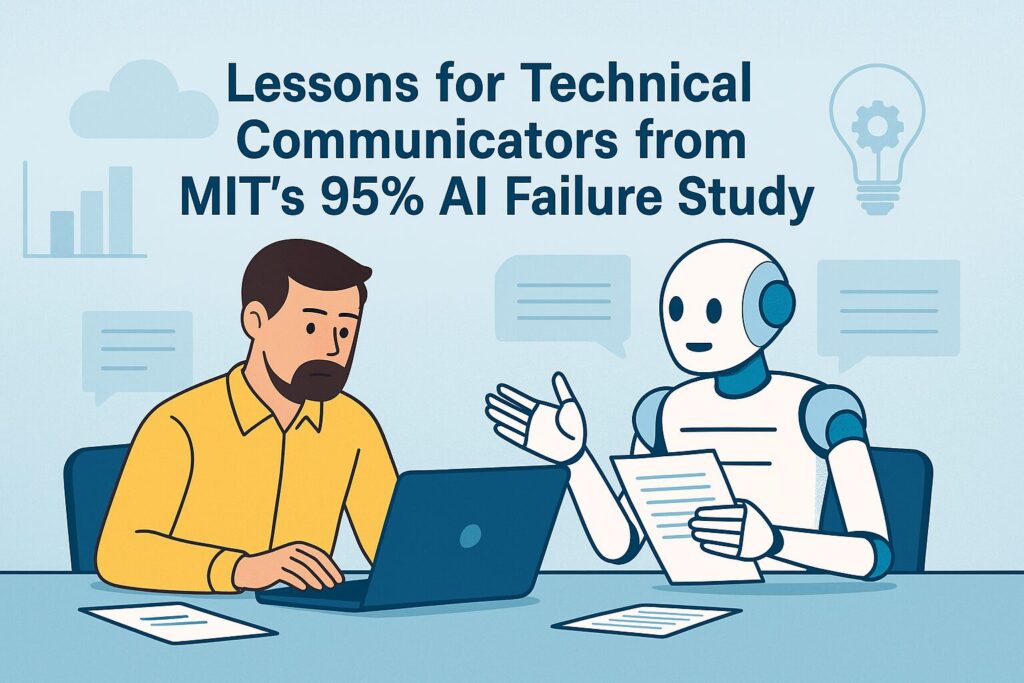
The past few years have been filled with breathless headlines about artificial intelligence transforming the workplace. But behind the hype, the reality is more complicated. According to MIT’s 95% AI failure study that has been making the rounds, most AI projects never achieve their intended outcomes. This finding is sobering for organizations investing heavily in the technology, and it holds important lessons for technical communicators.
The study surveyed organizations across industries and found that the majority of AI initiatives stall before reaching full deployment. While there are many reasons for these failures, ranging from inadequate data infrastructure to poor change management, one pattern stands out. AI projects often fail not because the algorithms are weak, but because communication breaks down.
What MIT’s 95% AI Failure Study Reveals
The report shows that technical barriers are only part of the problem. Senior leaders identified gaps in understanding, unrealistic expectations, and misaligned goals as major contributors to failure. In other words, even when the technology works, projects falter if teams cannot explain what the system is doing, how it integrates with existing processes, and why it matters to end users.
For technical communicators, this is familiar territory. We specialize in bridging the gap between complex systems and human understanding. The findings of MIT’s 95% AI Failure Study suggest that the same skills we apply to documentation, training, and usability can make or break AI adoption.
The Role of Technical Communication in AI Projects
The study indirectly highlights several areas where technical communicators can play a decisive role:
- Expectation setting: Many failures stem from inflated promises about what AI can deliver. Clear, accessible documentation and early-stage communication can align stakeholders around realistic outcomes.
- User trust: Employees resist new systems when they do not understand them. Technical communicators can build confidence by crafting explanations, FAQs, and training resources that demystify AI tools.
- Process integration: AI does not exist in isolation. It must work alongside established workflows. Communicators can document these intersections and create guidance for smooth adoption.
- Governance and ethics: Concerns about bias and accountability remain front and center. Communicators can ensure that policies, limitations, and oversight mechanisms are communicated clearly to both internal and external audiences.
Why the Study Matters for Tech Comm
The failure rate identified by MIT’s 95% AI Failure Study should be a wake-up call. It reminds us that technology cannot succeed without human-centered communication strategies. For technical communicators, this moment presents both a challenge and an opportunity.
The challenge is to adapt to a rapidly evolving field where AI systems are no longer future speculation but present realities. The opportunity is to position technical communication as a central function in successful AI deployment.
Moving Forward
The lesson from MIT’s 95% AI Failure Study is clear. Success with AI is not only about data science or engineering. It is about communication. Technical communicators who step into this space can help organizations avoid costly missteps and realize the potential of their investments. By doing so, they ensure that AI initiatives are grounded in clarity, transparency, and trust.
